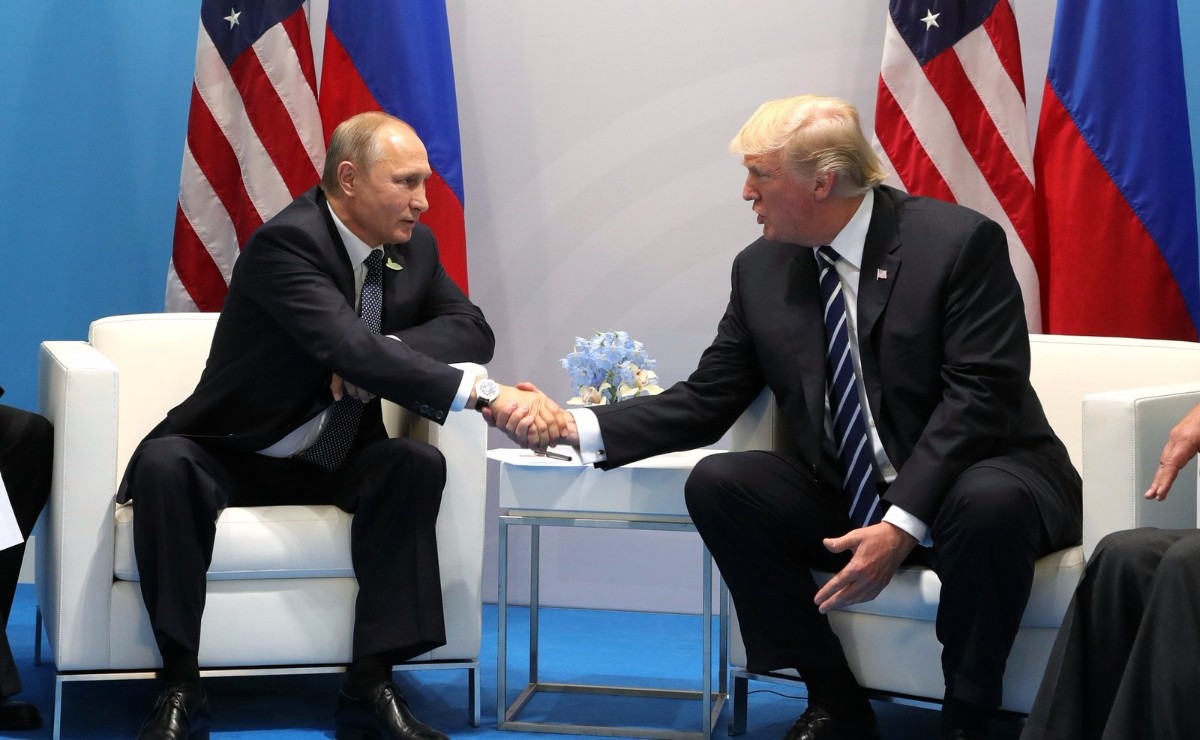 Photo credit: Russian Government Press Release July 7, 2017
Photo credit: Russian Government Press Release July 7, 2017
The Syrian Ceasefire: What is the strategic outlook?
The details of the Syrian ceasefire agreement announced last week remain unclear. The ceasefire is reportedly holding across southwest Syria, but the long-term intentions of the agreement have not been expressed by any of the stakeholders. Given the ambiguous nature of this agreement, several key questions arise:
- Who are the official and unofficial stakeholders?
The agreement has been presented as a joint US-Russian initiative, although other actors have been identified as participants. The Jordanian government announced that it is included in the enforcement mission as well as the Israeli government. What remains unknown is the level of participation expected from the Syrian government, Iran, and the multiple state-sponsored militias operating throughout the country. The Assad regime is committed to maintaining control over the Syrian state as well as its territorial integrity. Iran considers its heavy influence within southern Syria vital to its ability to support its interests in Lebanon. Both Iran and Syria are likely to protest an arrangement that impinges upon these objectives. - Who is the lead stakeholder?
Despite being presented as a joint effort, it appears that Russia has tacitly been ceded primary control over the direction and enforcement of the ceasefire agreement. Without the direct participation of the Assad government, Russia is the sole official representative of Syrian interests in relation to this particular ceasefire. Russia’s position appears to have solidified based on reporting indicating the Trump Administration’s desire to rely on Russia as the primary actor in the Syrian peace process. - What is Russia’s strategic benefit?
Russia’s primary strategic concern remains the survival of the Assad government. Ceding control of the ceasefire agreement to Russia will pave the way for a Russian dominated peace process that will guarantee the survival of the regime. Russia will then be positioned to maintain many of its secondary strategic interests within the region—including the continued use of its warm-water port in Tartus, a local hub for regional cooperation with Iran, and the ability to project political and military influence throughout the greater Middle East. These objectives are in direct opposition to US interests. - How will this influence subsequent agreements and the long-term peace process?
The framework of the current ceasefire may serve as a template for subsequent country-wide initiatives and a potential long-term peace agreement. UN-sponsored talks underway in Geneva have been overshadowed by the ongoing Russian-Iranian-Turkish peace process. By ceding the primary position to Russia, the US appears to be signaling its tacit acceptance of the agreement being worked out by those states. If this becomes the lasting peace treaty, the result will be a situation heavily in favor of Russia and Iran. Instead of maintaining a strategic status-quo, the US could suffer a strategic loss. - What is the end-game for the United States?
The US does not appear to have a clearly defined desired end-state in Syria. The Trump Administration has at times signaled contempt for Assad but it has also recently left open the possibility that Assad may be able to remain in power. If the US intends to keep the military focus on defeating IS, the current approach is misguided. Defeating IS and preventing the creation of a follow-on group would require a level of stability in Syria that cannot be achieved without a stable peace agreement and a favorable peace agreement is unlikely without US participation. The US must, therefore, participate in both efforts if either are to succeed in its favor.
The actions being taken by the United States with regard to the Syrian peace process signal a concerted effort to narrow its strategic objectives vis a vis the Syrian Civil War. Ceding control of the peace process to Russia allows the US to remain focused on the counter-IS campaign while skirting an increased responsibility as a major stakeholder in the Syrian Civil War. A US retraction will inevitably mean greater Russian and Iranian influence throughout the process. This makes it all the more likely that Russia will achieve its strategic objectives and Iran will continue to wield significant influence in the areas it is already entrenched.
Narrowing the strategic objectives of the United States in the region will certainly reduce costs and allow for a greater focus on the counter-IS campaign and support for subsequent stability operations. The consequence, however, will be a decreased level of influence in future Syrian peace negotiations. If the US has any desire to influence the end-state in Syria, it cannot back away now and expect to have any leverage later on.





